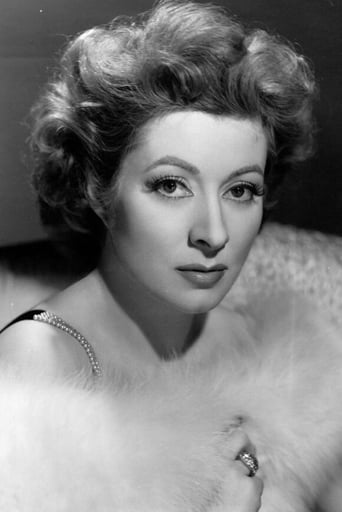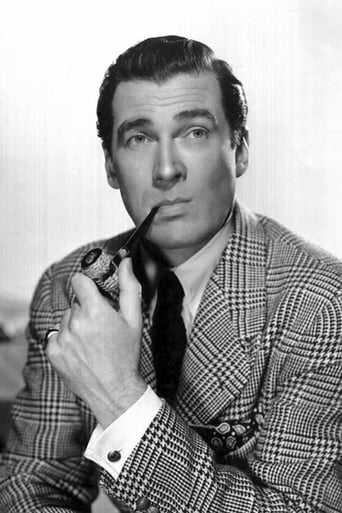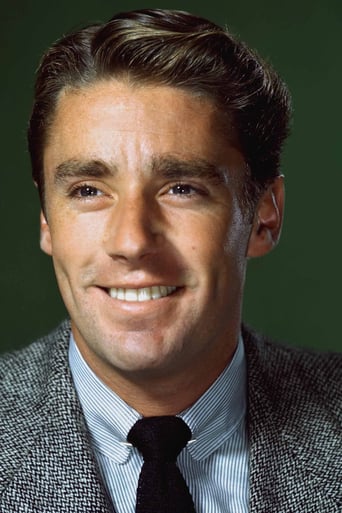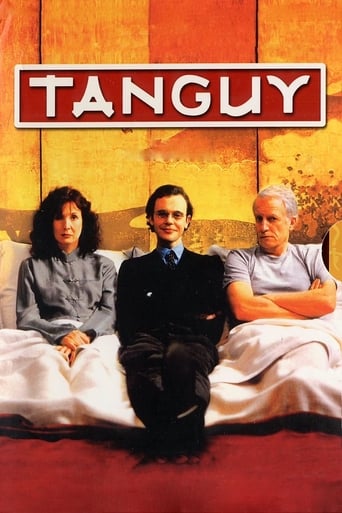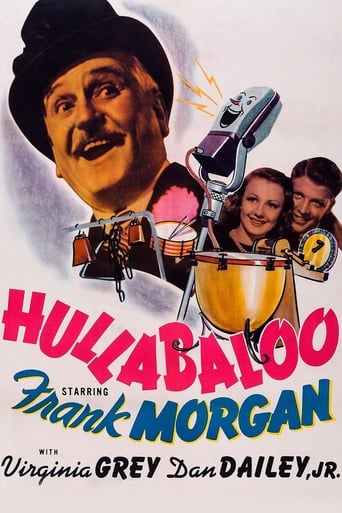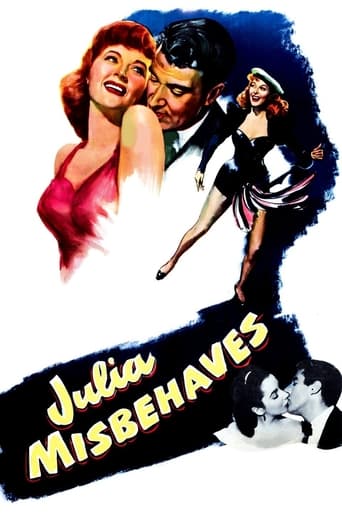
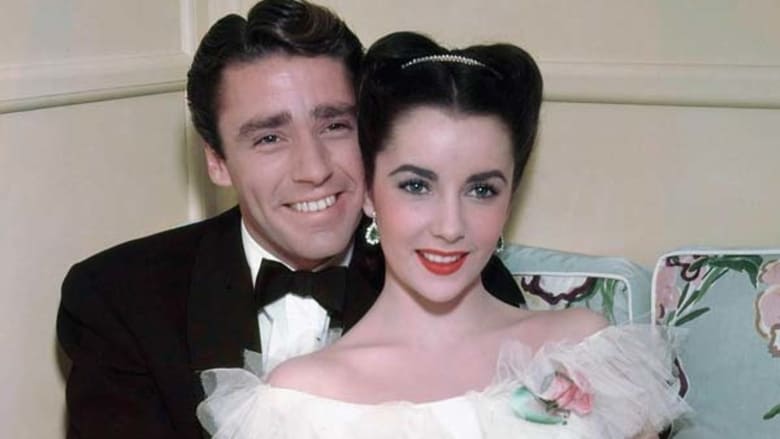
Julia Misbehaves (1948)
Julia and William were married and soon separated by his snobbish family. They meet again many years later, when their daughter he has raised invites her mother to her wedding, with the disapproval of William's mother.
Watch Trailer
Cast
Similar titles

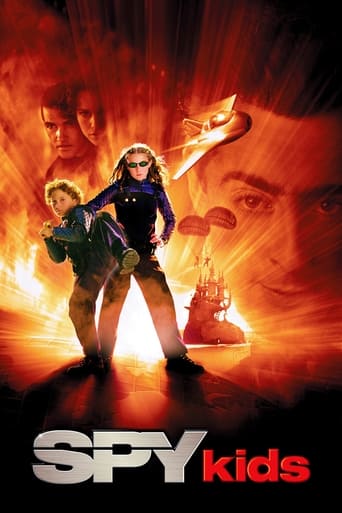
Reviews
Powerful
The movie's neither hopeful in contrived ways, nor hopeless in different contrived ways. Somehow it manages to be wonderful
It’s sentimental, ridiculously long and only occasionally funny
A terrific literary drama and character piece that shows how the process of creating art can be seen differently by those doing it and those looking at it from the outside.
The moviegoers of the mid-20th century wouldn't expect to see Greer Garson and Walter Pidgeon in a comedy. And, when MGM matched the pair for "Julia Misbehaves" in 1948, the fans didn't buy it. Too many times before they had seen the couple in dramas as loving husband and wife. But the roles for this film were quite different. So, MGM took a loss at the box office with this film. Yet, it wasn't that Garson, or Pidgeon for that matter, couldn't do comedy. They just couldn't do it together to please the movie public. In 1951, Garson starred with Michael Wilding in a very clever, funny and somewhat sophisticated comedy, "The Law and the Lady." By the end of the 20th century, most moviegoers were no longer people who used to look forward to the next dramatic story with Garson and Pidgeon. So, without the acquired bias of those people at that time, movie buffs today can look at "Julia Misbehaves" afresh. In doing so, we can appreciate the film as it is. We can hear the humorous lines and see the funny antics that viewers of the past couldn't bring themselves to enjoy. While this is nowhere near being a great comedy-romance, it has enough humor to make it a very enjoyable movie. Others have discussed the plot, so I won't go there. Instead, I'll point out some of the funniest parts of the film that I enjoyed. The scenes of Julia (Garson) in an acrobatic troupe on stage are hilarious. I think that's one of the best movie sequences of comedy from a stage act within a movie – second only to the Marx Brothers in "A Night at the Opera." Garson is an absolute riot in this scene, and it's all hers. Toward the very end of the movie, Julie and William (Pidgeon) get drenched and covered in mud in a thunderstorm. They slip and fall, and one leg of Julia's sinks in a mud hole up to her knee. It's the funniest weather scene I can recall from any movie. The film has a banner cast of supporting actors as well. Peter Lawford is Ritchie Lorgan, Nigel Bruce is Col. Willowbrook, Reginald Owen is Benny Hawkins, Mary Boland is Ma Ghenoccio, and Lucile Watson is Mrs. Packett. This was only the eighth movie for young Elizabeth Taylor, as Susan. And Cesar Romero is a stand out, adding to the comedy. He is Fred Ghenoccio, the head of the famous Ghenoccio acrobatic family. Romero's character is supposed to have super muscles, and in one scene we see him pick up a chair that William is sitting in, and walk William and chair across the room and back. Fred is so muscle-bound that he's funny to look at. His sport coat is so stuffed with padding that he looks very top heavy. A couple reviewers considered this a poor job of costuming, but I wonder if the studio didn't intend it to be so obvious for the further comedy effect. The plot Is OK for this film, and holds the various sequences of antics and comedy together. Here are some of the very funny lines from the screenplay. Fred says to William as they both stand outside Julia's bedroom door, "She may be your wife, but she's my fiancé." William, "To say nothing of a stitch in time saves nine." Julia, "What's that got to do with it?" William, "Nothing. It just occurred to me." Fred, "You took me for a strange man?" Julia, "Not not really." Fred, "Well you either took me or you didn't."
A a writer, i enjoy the spaciousness of this story. This is a sense-of-life portrait of an indomitable woman with a keen sense of Ionic humor, the ability to defend herself when verbally attacked and a very bright and honest mind. In her youth she had married a rich man's son and thought him strong enough to stand up to parental disapproval for the sake of his young actress wife. They had a child, a girl, then later he said he did not love her and called off the marriage. She has gotten by somehow for years; he raised the child. Only now the daughter, about to be married, wants her mother beside her at the wedding. Julia, a female in the United States where few people have any rights and females less, is cadging money off old philanderers who should know better for services not rendered; the latest is a friend of her husband's. She arrives at the house and charms everyone...from the first, the husband wonders why he had ever let her go. She finds her daughter's fiancée hopeless and makes sure she gets interested in a young painter instead. Somehow she gets involved on the way there with the Flying Ghenoccios, in whose balancing act she makes an hilarious debut atop a human pyramid, winning the eldest brother's heart. He shows up then too, complicating life for the husband. They end up nearly drowned and arguing vociferously before she finally accepts her husband's second proposal and his explanation that he had allowed his snobbish family to talk him out of love when he as young. All turns out well for all concerned; but not until after many enjoyable and sometimes farcical complications, and touching moments, occur including Julai's explanation of why "cylamen pink" would be a disaster as a color for bridesmaids' gowns. This film has luminous style in B/W and an expensive look about it, the MGM touch. The roster of those who contributed to this handsome and large-appearing production is a long and much-honored one: gowns by Irene, script adapted from Margery Sharp's "The Nutmeg Tree", direction by Jack Conway, music by Adolph Deutsch, set decorations by Edwin B. Willis, art direction by Daniel B. Cathcart and Cedric Gibbons, with cinematography by Joseph Ruttenberg, script by Arthur Wimperis, Harry Riskin and William Ludwig, with adaptation by Monckton Hoffe and Gina Kaus. In the large cast Greer Garson and Walter Pigeon are the mature couple, and they are unarguably wonderful together, as always. Lucile Watson as his mother, Peter Lawford as the painter, Mary Boland as the mother of the Ghenoccios and Cesar Romero as her eldest Joe are all very good. Nigel Bruce, Elizabeth Taylor as the daughter, Reginald Owen, Ian Wolfe, Henry Stephenson, Veda Ann Borg and Phyliis Moore have less to do but all do what they are asked to do very well. This is a long, pleasant and occasionally brilliant satire of its own plot line--taking responsibility for one's own values. The rich and the deluded in this trenchant look at human errors and choices do not come off particularly well; virtues, though not exclusively, seem mostly to belong to those who deal with reality and not social-class expectations and conventions and appearances---in a nation that was not supposed to have any such folderol. Julia in the person of Greer Garson is a stiff breeze of fresh air; and in the brilliant and only modestly-stuffy person of Walter Pigeon we see a human edifice in exact need of that cleansing stir, motion and source of verbiage. She is obviously exactly the woman he should have married after all and should never have let go for any reason. Forget this is Greer Garson; the film would have been accepted by public and critics in 1938 as the beautifully-made gem it is; if it was made too late, it was not too late for its genial look at human honesties and foibles, but for a nation's folk no longer much interested in realities, as it s citizens had been during the late war. A true delight and a rare and major comedy appearance for the witty and delightful stars.
I will not give away the plot, but will give my own run down on the characters. Walter Pigeon-he is good, but stuffy in his role-his best part is with the Seal. Greer Garson-L.B. Mayer must have wanted to punish her with this wacky role. Elizabeth Taylor-her first grown up role, I cannot believe MGM wanted her in grown up roles so soon. She is pretty, but seriously folks-she looks more like she is about to attend a sock hop. Peter Lawford-has an odd role, but not too bad. I think he was overall film wise the best human part. Nigel Bruce-as a dirty old man friend of Walter's. Reginald Owen-he was in it for just a bit and this was sad-he was a good actor and added much to films. Cesar Romero-talk about a challenging role, he plays a cockney speaking Englishman! Corny, but not bad. The Seal-this animal and his antics with the stuffy Walter Pigeon are priceless-the very best thing about the movie. Forget Elizabeth Taylor-the Seal acts and looks better in this film than she does. Sorry Liz.
Now, you may say to yourself "Greer Garson **gasp** comedy?!" But this is actually a lovely movie about an actress who is attending her daughter's wedding. She hasn't seen her daughter in many years, since her husband, after "one year and two months (of marriage)... said 'Julia, I don't love you anymore. I think it's better if we separate.'" Julia was only invited by "accident", but one certain daughter insists that she stay, contrary to her grandmother's opinion. The film is very fun, if you don't have one of those minds that have type casted Greer Garson, and can't accept that she has a wider range than "Mrs. Miniver" type roles. She proves very adept at comedy, and also look for what seem to be "inside jokes" in some scenes.
